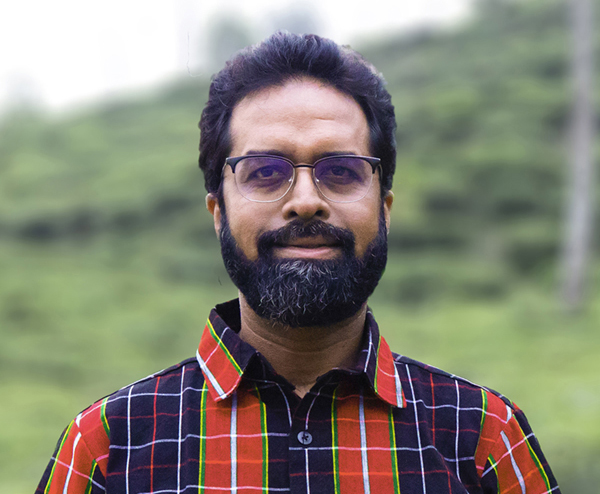
Until 2002 ‘palliative care’ was unheard of in North Eastern India but as a result of personal tragedy, Santanu Chakraborty (GradCertHlth ’08) has been leading a movement to create awareness and establish palliative care services in the region.
In 2000, Santanu’s wife Ruma died after suffering from cancer for nearly two years. During this time local medical facilities refused to care for Ruma because she was terminally ill, leaving Santanu to take on the role of carer.
The experience motivated him to establish the Ruma Abedona Hospice (RAH) in 2002, in memory of his wife. At that time, it was the only hospice in West Bengal and the only organisation throughout North East India to provide palliative care through pain management, plus medical and emotional counselling to individuals and their loved ones until the time of death and beyond.
With a desire to expand his knowledge and experience in palliative care, Santanu studied a Graduate Certificate in Health (Palliative Care) at Flinders University, graduating in 2008.
‘Flinders had a big impact on my life. It actually changed me entirely to a new person with having full confidence to work in the palliative care,’ says Santanu.
‘We did role playing to learn to deal with different issues in palliative care. Through this we started to understand the feelings that the terminally ill patients and their families often feel. It was a good way to learn about the different practical situations of the work environment and to communicate effectively with terminally ill patients and their family members.’
Now providing day care, home care and community service in palliative care, the RAH has inspired other private medical institutions in India to offer palliative care.
Santanu’s next goal is to expand the facilities and build a complete charitable in-patient facility, with no cost to underprivileged people in West Bengal.
‘There are now in-patient facilities for palliative care in a few big corporate private hospitals but that makes no difference to the underprivileged population of our country. As a result, access to palliative care in India is less than one percent of its actual need,’ says Santanu.
To develop their services, Santanu is inviting trained palliative care nurses, doctors and volunteers to work with him at the hospice, a place that has become his life’s passion.
‘My present role is not a job, for the past 17 years it has been my life and I am living it with passion.’
Flinders graduates have global reach and international impact, read more

